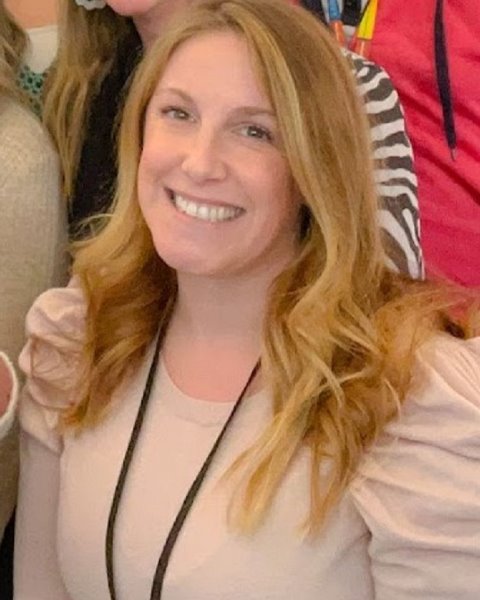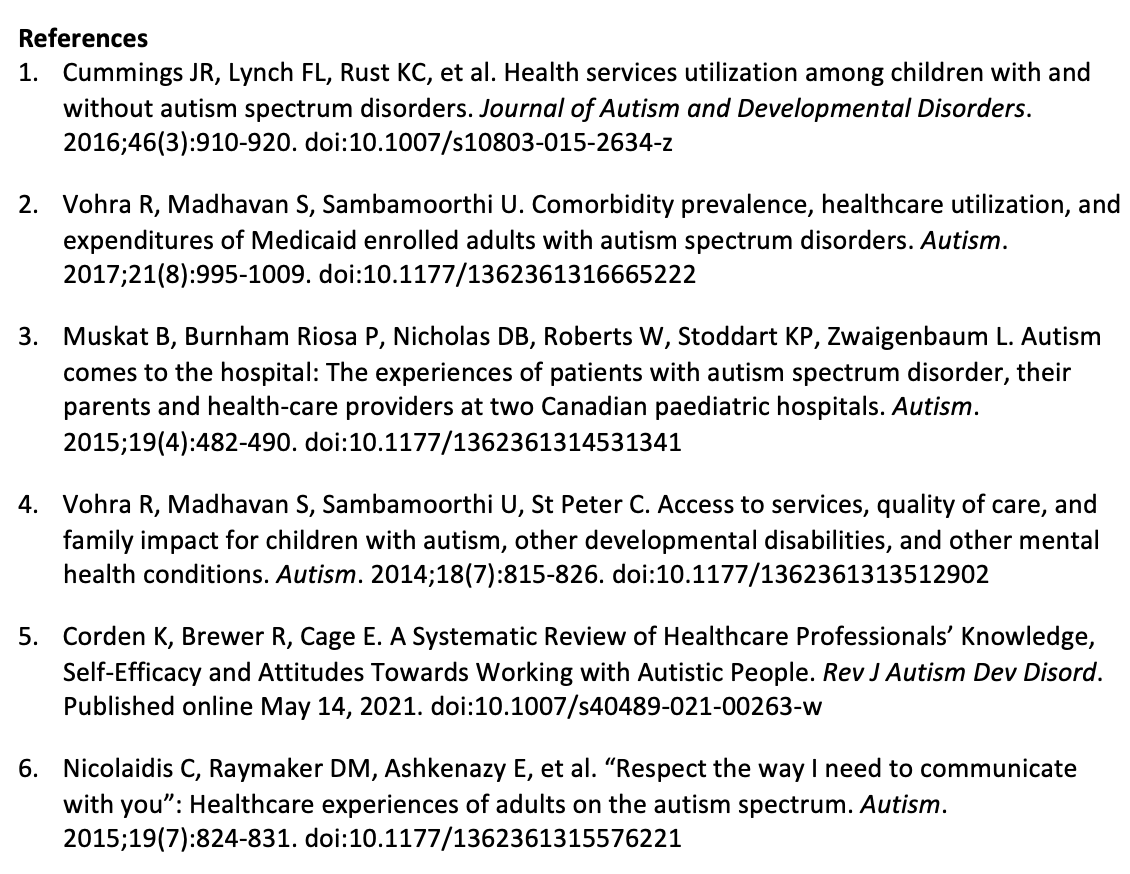Developmental and Behavioral Pediatrics: Autism
Category: Abstract Submission
Developmental and Behavioral Pediatrics: Autism
594 - Elucidating the perspectives of autistic youth about their healthcare experiences
Sunday, April 24, 2022
3:30 PM - 6:00 PM US MT
Poster Number: 594
Publication Number: 594.309
Publication Number: 594.309
Belinda O'Hagan, Boston Medical Center, Boston, MA, United States; Erika Crable, University of California, San Diego School of Medicine, San Diego, CA, United States; Amy Ursitti, Emory University, Atlanta, GA, United States; Sarah Foster, Boston University School of Medicine, Somerville, MA, United States; Alexander Friedman, Boston University School of Medicine, Boston, MA, United States; Lauren Bartolotti, Boston Medical Center, Boston, MA, United States; Shari Krauss, Boston Medical Center, Boston, MA, United States

Lauren Bartolotti, MA
Associate Director
Boston Medical Center
Boston, Massachusetts, United States
Presenting Author(s)
Background: Autistic individuals have higher rates of co-occurring medical and psychiatric conditions and promote increased service use within this population.1,2 However, autistic individuals and their caregivers report lower satisfaction with healthcare service delivery, citing needs that are incompatible with the healthcare environment.3,4 Prior studies have described the general healthcare experiences of autistic adults6, but little is known about health seeking and service use experiences of autistic youth.
Objective: To qualitatively describe the healthcare seeking experiences of autistic youth.
Design/Methods: We conducted four sequential, 90-minute, virtual focus groups with seven autistic youth between ages 11-25 in January-November 2021. Participants convened in natural focus groups (not age-specific) since most participants knew each other from prior autism-related initiatives and had an existing rapport. A semi-structured focus group guide was used to inquire about positive and negative healthcare experiences, desired accommodations, and recommendations for healthcare staff. Audio recordings of focus groups were transcribed and verified by two research assistants. Data were analyzed in NVivo using inductive coding techniques with tenets of grounded theory. Three trained researchers used qualitative memos to identify high-level topics that emerged from focus group transcripts. Consensus discussions were used to develop codebook based on these memos and knowledge of the focus group content. Transcripts were double coded by two independent coders. Consensus discussions were used to resolve any coding discrepancies, with a third coder serving as a tie breaker. Themes were identified through a close reading of the coded data, using thematic analysis.
Results: Identified themes include: (1) preferences in the healthcare environment (e.g., quiet, clean waiting rooms, sensory accommodations), (2) patient involvement in healthcare decisions, (3) deterrents of health services use (e.g., sensory overstimulation), and (4) facilitators of patient-provider relationship.Conclusion(s): The type and level of specific support that autistic youth need vary across individuals. However, participants largely agreed on environmental barriers and factors that facilitate and hinder patient-provider relationships. Our findings to date support previous research that suggest the need to individualize care, disseminate individualized patient needs to all members of their care team, and increase provider knowledge about this unique patient population.
References
Objective: To qualitatively describe the healthcare seeking experiences of autistic youth.
Design/Methods: We conducted four sequential, 90-minute, virtual focus groups with seven autistic youth between ages 11-25 in January-November 2021. Participants convened in natural focus groups (not age-specific) since most participants knew each other from prior autism-related initiatives and had an existing rapport. A semi-structured focus group guide was used to inquire about positive and negative healthcare experiences, desired accommodations, and recommendations for healthcare staff. Audio recordings of focus groups were transcribed and verified by two research assistants. Data were analyzed in NVivo using inductive coding techniques with tenets of grounded theory. Three trained researchers used qualitative memos to identify high-level topics that emerged from focus group transcripts. Consensus discussions were used to develop codebook based on these memos and knowledge of the focus group content. Transcripts were double coded by two independent coders. Consensus discussions were used to resolve any coding discrepancies, with a third coder serving as a tie breaker. Themes were identified through a close reading of the coded data, using thematic analysis.
Results: Identified themes include: (1) preferences in the healthcare environment (e.g., quiet, clean waiting rooms, sensory accommodations), (2) patient involvement in healthcare decisions, (3) deterrents of health services use (e.g., sensory overstimulation), and (4) facilitators of patient-provider relationship.Conclusion(s): The type and level of specific support that autistic youth need vary across individuals. However, participants largely agreed on environmental barriers and factors that facilitate and hinder patient-provider relationships. Our findings to date support previous research that suggest the need to individualize care, disseminate individualized patient needs to all members of their care team, and increase provider knowledge about this unique patient population.
References

